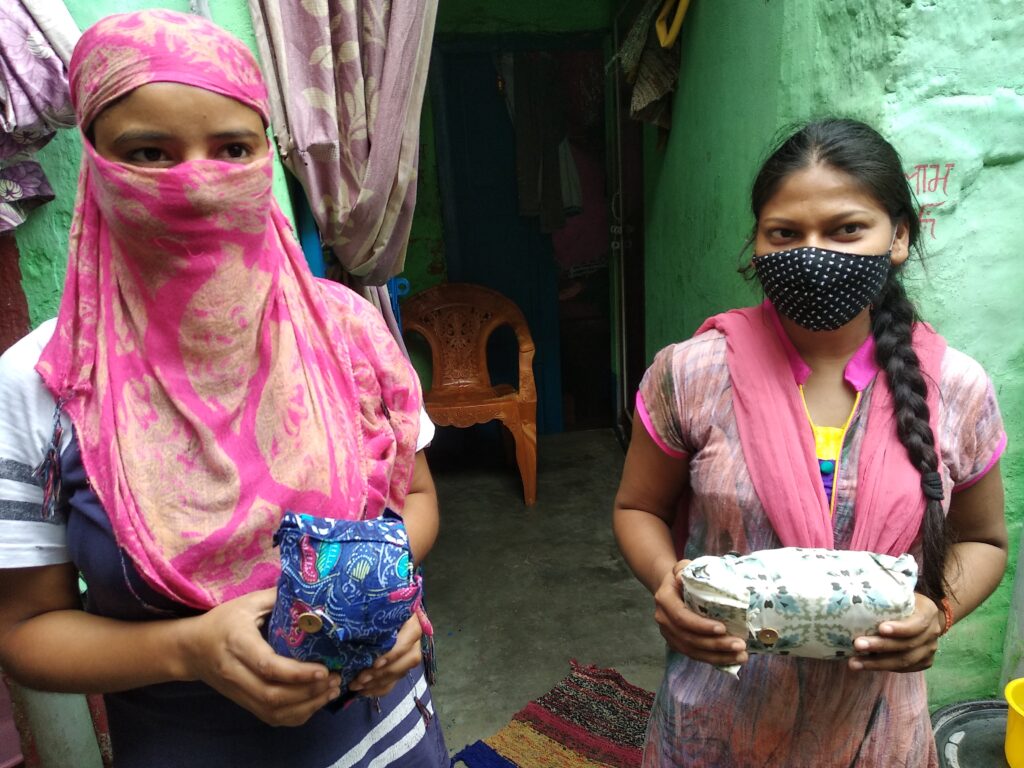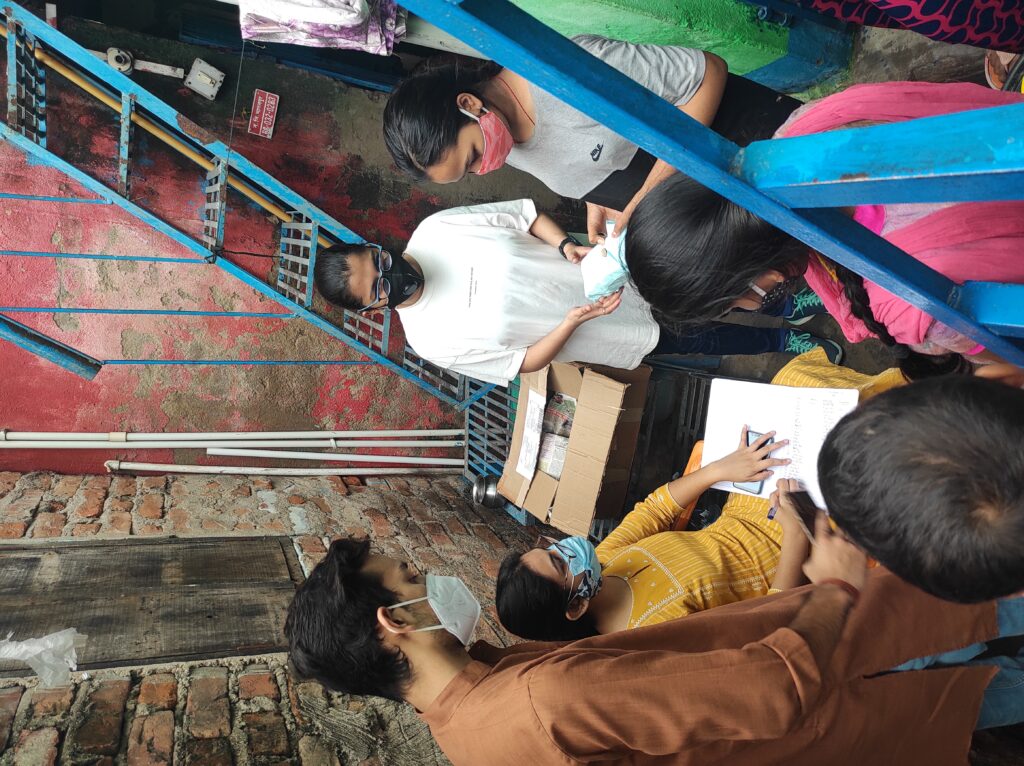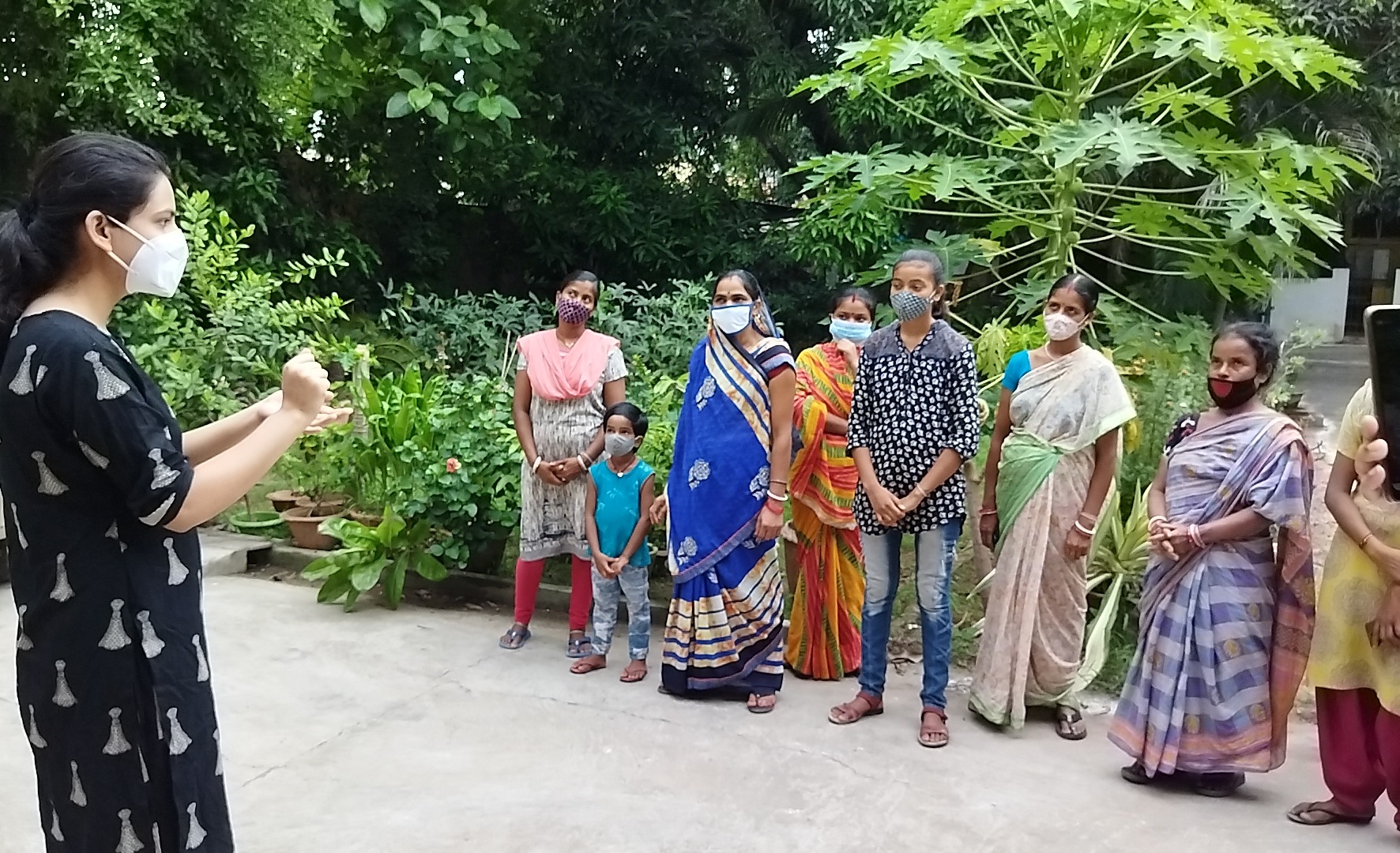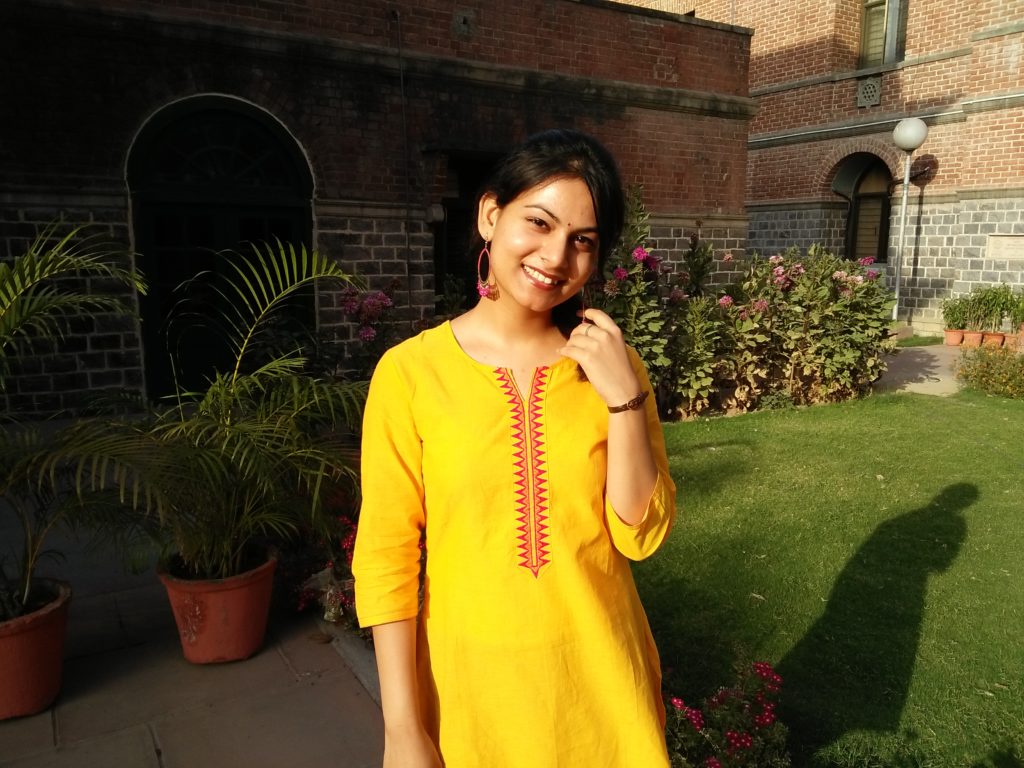
“When we don’t have sufficient money, we buy sanitary pads available at the lowest price.”
“We didn’t know about cloth pads.”
“We have been told that cloth causes infection.”
These are statements from menstruators, dwelling in slums of Bihar, defining the various problems associated with period poverty : lack of resources to buy products, lack of awareness about more financially sustainable options, and misinformation about products like cloth. As per an IMRB survey, about 93% women in rural Bihar do not have access to safe menstrual hygiene products. Having to resort to cheap and unsafe methods to manage menstruation can have lasting consequences on several aspects of a menstruator’s life like education, psychosocial health and overall well-being.
Sammaan cloth pads donation drive was initiated by The Happy Turtle, in collaboration with Alharh, the menstrual awareness campaign I run in Bihar. Through Sammaan, we aim to support menstruators in vulnerable communities in Bihar with a cost-effective and environment–friendly menstrual product : Unmukt Reusable Sanitary Napkins, so they can manage their menstrual periods with safety, comfort and dignity. We kicked off this initiative on 8th March, 2021, i.e., International Women’s Day. With each Sammaan kit available for donation at a subsidized price, full transparency and accountability with regards to the use of funds has been ensured. The Sammaan kits have also been listed for donation on two other e-marketplaces promoting sustainability : Punya and Brown Living. Since the time we started, we are so thankful to have received public donations for 100 kits and counting.

The First Distribution Drive
During our first distribution for ‘Sammaan’ in June, we reached out to 24 menstruators, aged between 14 years and 45 years, in an urban slum in Bihar. This drive helped us gain more insights into the issues menstruators from low-income groups face in Bihar. We learnt that the marketing gimmicks of disposable sanitary pads have led people to believe that traditional methods such as cloth or cloth pads are not good. When we interacted with the menstruators and gave information about correct usage and maintenance of cloth pads, we were able to bust myths like cloth pads are unhygienic or unsafe. Some menstruators reportedly used cloth pads made out of old cotton sarees before they had to switch to disposable pads because cotton has become expensive over the years and hence, unaffordable for the community members. Even while buying disposable sanitary pads, they would trade-off good quality (of higher price) ones with more ration and would only buy the low-cost pads. As a user myself, I could vouch for the quality and longevity of the Unmukt pads.

The Second Distribution Drive
Our second distribution drive was held in the first week of July at the office of the NGO, Peepal in Bhagalpur district, with menstruators in their target communities who reported limited access to menstrual hygiene products. The menstruating women and girls were engaged in soap-making, stitching, and such activities but their work was halted as a result of the pandemic. Naturally, they are financially burdened and have little to spend on menstrual needs. During this distribution, we had the opportunity to interact with a few school-going adolescents too who were not familiar with reusable sanitary napkins. There were similar concerns about the safety and hygiene standards of cloth pads, like we heard from menstruators in the first drive. We were able to address these queries and doubts about the product. As we return home from the distribution drives, we carry a sense of relief knowing these menstruators would not have to spend on menstrual products for the next few years so they would not have to trade off between pads and other essentials and at the same time, we feel relieved having prevented over 7000 throwaway pads* from adding up to the unmanaged pile of biochemical waste generated per year, with each drive!
With an overwhelming response of donors and supporters, we were able to start with an outreach of about 25 and reached upto 100+ kits by the end of June. You too can contribute to help a menstruator in Bihar have a better menstrual experience. Donate a kit.
*Assuming that a menstruator uses at least 4 pads per day during the average five-day menstrual period occurring roughly every month
About The Author:
 A Literature student, Shalini is an alumna of Miranda House, Delhi University. Shalini runs a menstrual awareness campaign called ‘अल्हड़’ in her hometown Bhagalpur in Bihar. The district-wide campaign is to reach out to help spread awareness to ensure that menstruation is a stigma-free and myth-free experience for all menstruators. An ardent reader, Shalini pens down meaningful sentences occasionally. Shalini tries to do her bit in making turtles happier and the Earth greener.
A Literature student, Shalini is an alumna of Miranda House, Delhi University. Shalini runs a menstrual awareness campaign called ‘अल्हड़’ in her hometown Bhagalpur in Bihar. The district-wide campaign is to reach out to help spread awareness to ensure that menstruation is a stigma-free and myth-free experience for all menstruators. An ardent reader, Shalini pens down meaningful sentences occasionally. Shalini tries to do her bit in making turtles happier and the Earth greener.

